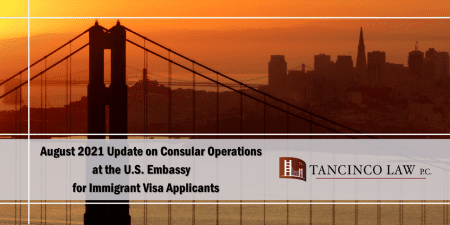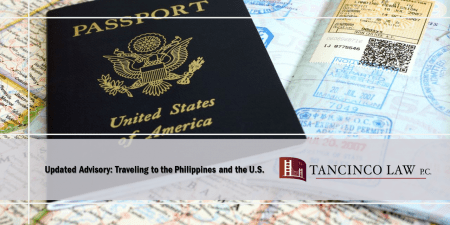SAN FRANCISCO — Just as the euphoria over the recently implemented Filipino World War II Veterans Parole (FWVP) program is beginning to rise, a very timely warning was aired by the panelists at a “Talakayan” hosted by the Philippine American Press Club (PAPC) and the Philippine Consulate General in San Francisco: Scammers are lurking in the shadows, waiting for victims.
The complexities that may await veterans of advanced age, who may not have heard of the news about the program could provide scam artists opportunities to strike.
No less than the United States Citizenship and Immigration Services (USCIS) San Francisco District Director John Kramar delivered the alert, especially to the elderly whose first language is not English.
“So we have a double vulnerable population here. It is very important for all of us, the civil servants, those working for the community, it is also the responsibilities of the media, to put the word out to be very careful about who you go to,” cautioned Kramar.
“USCIS.gov is the website for U.S. citizenship immigration service. No other site is the official site showing what the forms are, what the fees are, what the process is. Just make sure that you look at the correct USCIS website and nothing else,” he added.
Kramer also explained that there are licensed attorneys with the U.S. Bar Associations and accredited representatives of the Department of Justice that can be relied on.
“That list is available is available in our website and through the Department of Justice website for everyone to check. There are well-meaning advocates in the community. Go to the right persons and if you are not certain, check it out,” Kramer advised.
Accurate information available
Veterans Equity Center Board President and immigration lawyer Atty. Lou Tancinco stated that accurate information must be disseminated by reputable organizations, encouraging them to rely only on USCIS published information.
“Opportunism arises when unscrupulous individuals demand money from family members who are not even qualified for the FWVP,” Tancinco warned.
“When someone promises to deliver a service that seems to be too good to be true, that is a red flag and the veterans’ family should be wary of the existence of these scammers,” Tancinco further cautioned. “Hence, as attorneys we need to be working together with the USCIS and the Philippine Consulate to outreach to the stakeholders.”
Talakayan venue host Consul General Henry Bensurto Jr. admitted that not too many people are well informed yet on the FWVP even if the information had been available for more than a month.
“Please read the regulations, talk and consult with the right people who know the regulations well. We want you to get the right information by consulting the right people,” exhorted Bensurto who also plans to use the consulate website.
The FWVP program was borne out of an initial policy announced in July 2015 by the Obama administration. The United States Citizenship and Immigration Services (USCIS) worked on the policy which is now in effect.
Kramar hailed it as a measure that honors the thousands of Filipinos who bravely enlisted to fight for the United States during World War II. “It is extremely important for the USCIS service and to me as director of the San Francisco district to be here to recognize the extraordinary contributions and the sacrifices of Filipino veterans who fought for the United States during World War II. So it is my pleasure and an honor to be here and talk about this program.”
He added: “This policy will allow certain Filipino American family members that have been waiting so long for American visas to come to the U.S. to be with their loved ones. For many it will also allow them to lend support, care and companionship to their elders in honor of all their services, including the survivors’ spouses.”
‘75 years in the making’
In an exclusive interview during the Kalayaan 2016 in Union Square in San Francisco, Maj. Gen. Taguba (Ret.), an veterans’ advocate seeking the Congressional Gold Medal for the veterans, strongly believes that the parole program had been 75 years in the making.
“People had to wait for 75 years for that parole program, the first 50 years for U.S. citizenship of the veterans themselves and another 25 years for the children to be able to apply. The children have become adults and the 75 years have become more than a lifetime. And those veterans are in poor health, some of them need medical care and given care of by their children,” Taguba rued, citing veteran Art Caleda in Hawaii who is 96 years old and will finally get his wish that two of his sons can come to Hawaii to live with him.
Veterans Equity Center (VEC) Executive Director Luisa Antonio, reported that about 30,000 World War II Filipino veterans came to the U.S. after the 1990 Immigration and Nationality Act. “In the Bay Area there are now fewer than a thousand veterans who have lived on supplemental security income. A lot of them do not have family members to take care of them. And this makes the parole program more important.”
The federal register presently estimates that between of 2,000 to 6,000 Fil-Am veterans are U.S. citizens in the U.S.
Concerns over reentry
Kramar and Tancinco also expressed concern for family members from the U.S. who may have problems on reentry should they be required to apply for the benefit outside of the U.S. because they had overstayed in the U.S.
“Parole is not a visa but a window of relief for those who cannot in any way come here immediately in a legal way. It is a travel document, a temporary permission to come here and not a substitute for an immigrant visa or a non-immigrant visa. The short five-year parole program is not an immigrant visa and is good only for three years,” Tancinco stressed.
Tancinco also strongly bats for extension of the program beyond five years because some visa petitions may not yet be current in five years and the family members may need to be in the US on parole to wait longer.
Also, Tancinco stated that the biggest challenge is a change in administration in the U.S. since the program is only a policy and not a piece of legislation. It would be good to have a new president who is an ally of the previous administration since there would be a bigger chance the policy would continue.
Here is a presentation prepared Atty Lou Tancinco on the Filipino World War II Veterans Parole Program (FWVP).



